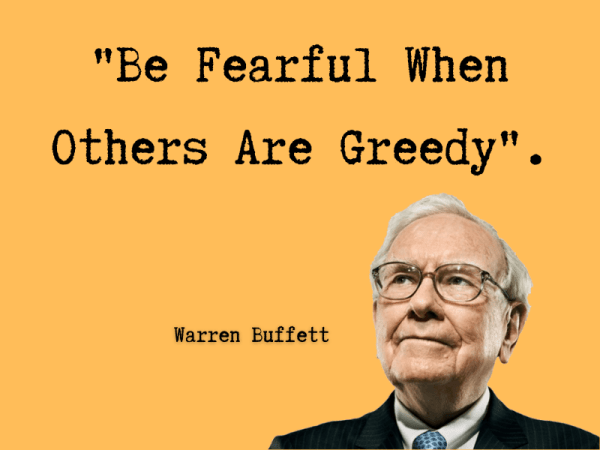Last weekend, I decided to take a short break from reading and turn on Netflix. Because I’m a huge documentary fan, it’s not shocking to see the first thing Netflix suggested to watch was ” (Bernie) Madoff: The Monster of Wall Street.”
I clearly remember 2008, when his face was all over the media stream and newspapers. I had no idea about the stock market, let alone hedge funds, at the time. So I noticed that watching four episodes should take me two days, but I was mistaken. I was so hooked that a watched them all back-to-back.
Here are the things I learned from the documentary.
Table of Contents
Too good to be true?
Because there are no certainties in investing, if something appears too good to be true, it probably is. When a hedge fund or financial advisor promises a lucrative 15% annual return when historically the stock market has only produced returns of up to 10%, you should be extremely concerned.
What are they doing differently that others aren’t? This should have been your next question.
Even so, is it legal?
Anyone can be fooled
Anyone can be deceived, even with the utmost diligence. To be persuaded by something, all it takes is for you to let your guard down for less than a second. The United States Securities and Exchange Commission experienced just that (SEC).
If the SEC can be duped every time they investigate, what hope do us investors have?
The MADF estimated assets were $7 billion at the time the SEC dispatched two rookie agents to look into the situation, and the SEC determined there was no foul activity. As a result, it was deemed okay to put your trust in them and make an investment.
The SEC didn’t start to take MADF seriously until the stock market crashed in 2008, investors attempted to withdrew their funds to no avail, and the hedge fund’s assets exceeded $50 billion.
Trust your instincts
As soon as you enter a vehicle dealership, a salesperson will approach you with a friendly smile and ask, “How can I help today?” There’s a psychological explanation for why they ask you that. is to get to know you as a customer and understand your demands.
After gathering all the information required, the salesperson will accompany you to the showroom. Since you now technically own the space, you are free to ask the salesperson as many questions as you choose. The salesperson’s objective is to close the deal. The process should make you feel content and at ease.
On the contrary to Bernie Madoff, who will return your money and instruct to stop doing business with you if you start to ask too many questions. No company has ever turned away a customer because of they had too many inquiries. That’s unheard of.
Don’t blindly follow trends (Fear of missing out)

Following trends is an idea that comes from understanding market psychology. With social media, it is now much simpler to fall victim to these patterns. You’re actually putting yourself at risk if you just try to copy a financial guru on Twitter or Facebook without taking the time to do your own research.
It has occurred in the past and will do so in the future.
Don’t put it all in one basket
In the eyes of investors, the entire Bernie Maddoff situation is depressing. What makes it worse is hearing about people who are close to retirement pouring their entire life savings into the hope of being able to live off of nonexistent profits. Certainly sounds like cryptocurrency, huh?
It is your duty as an investor to calculate all possible risks. No matter how fantastic a sector may be, you should constantly remember that it will never permanently be in green. There are ups and downs in any industry. People who have lived through decades of market crashes generally strongly advocate diversification.
Don’t be a selfish family member
Everyone must create and protect their legacy. It’s not only about how much money or material possessions you’ll leave behind; it’s also about the kind of person you’ll be remembered as, and the principles you lived by, once you pass away.
For Bernie, I’m fairly certain that he started off with the appropriate intentions for a family man. However, once you begin ignoring the concerns and worries of your own son, who also happens to hold top positions inside your firm, you will realize that you have made a mistake. Your family’s values become irrelevant.
There is no question that he was responsible, not in a physical way, of course, for his boys’ deaths. It became intolerable. Who knows, maybe some investors as well.
Related: Don’t Aim For Success. Aim To Be Valued
In the End
These are the Bernie Maddoff lessons I learned from the Netflix documentary. He was the brains behind his own empire, but alas, all good things must come to an end.
When researching anything about the 2008 stock market crisis, it is impossible not to come across some of Bernie Maddoff’s writings. He had turned into the symbol of the 2008 collapse, according to the documentary.
If your adviser never underperforms the market, be very worried as stock market fluctuations are common. Although I still believe that being in this circumstance is highly unusual, you don’t want to be involved in it.
Have you already seen it? What else would you add or say in that case?

Gio founded TheGrowthFocusedGuy in January 2020 because he was fed up with debt.
His mission is to document his journey to Financial Independence in order to motivate and inspire others to get out of debt and begin building generational wealth.
